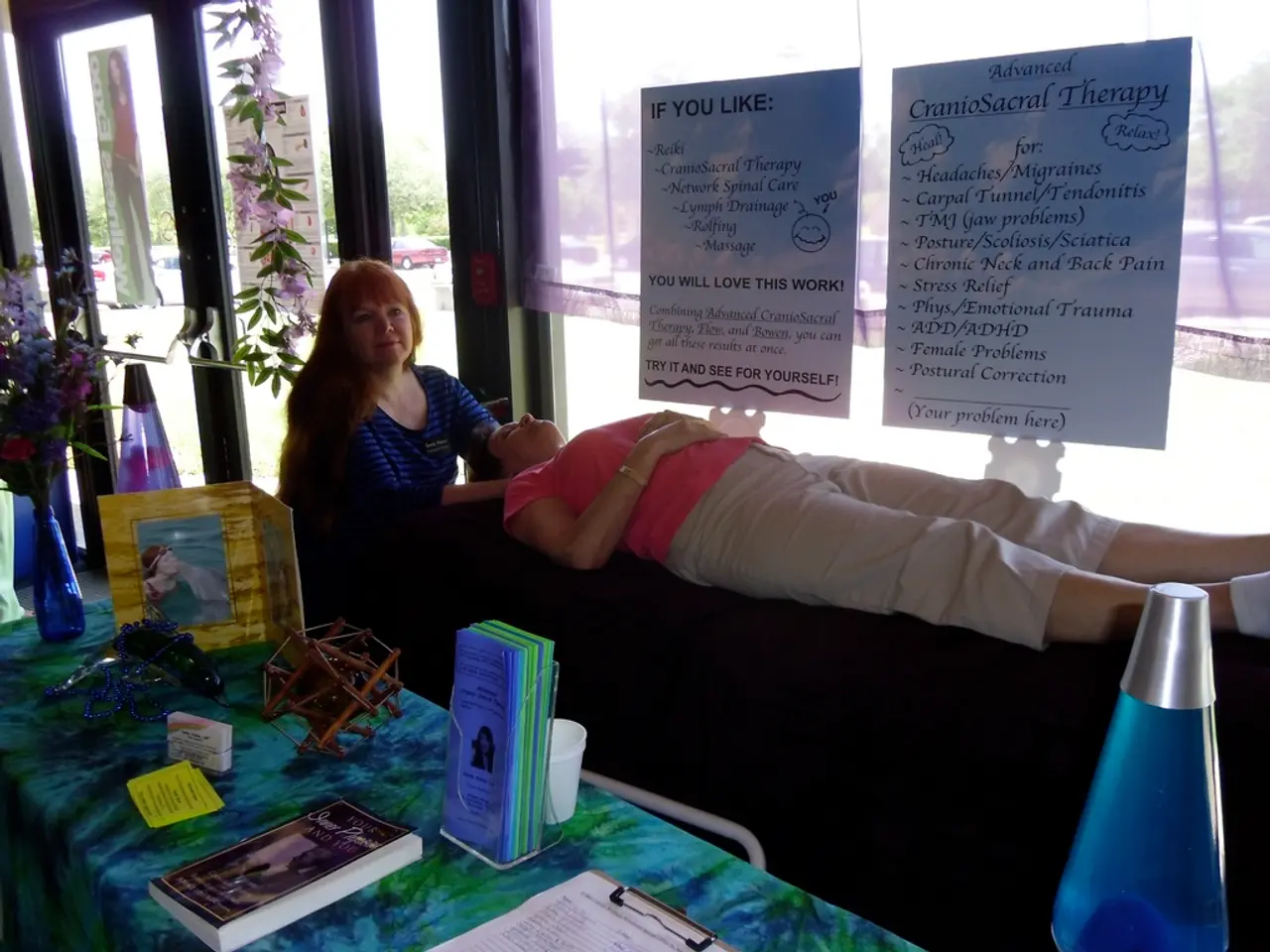Strategies for managing narcissists: Guidelines, resources, and frequently asked questions
In navigating relationships with individuals diagnosed with Narcissistic Personality Disorder (NPD), understanding their behavior patterns and implementing effective coping strategies is crucial. Here's a comprehensive guide to identifying signs of narcissistic behavior and strategies for managing interactions.
Strategies for Dealing with Narcissistic Personality Disorder
- Avoid Trying to Change Them: It's essential to focus on maintaining your own well-being rather than trying to alter their behavior, as NPD is unlikely to change[1, 2].
- Nurture Outside Relationships: Counteract the narcissist's tendency to isolate you by maintaining strong relationships with friends and family[3].
- Set Firm Boundaries: Establish clear limits and enforce them consistently to protect your emotional space[1, 5].
- Use the "Gray Rock" Method: Remain neutral and unemotional when interacting with a narcissist, as they often seek reactions[2].
- Refuse Argument Engagement: Avoid arguing as it can escalate conflicts and reinforce narcissistic behavior. Stay calm and empathetic[3].
- Focus on Self-Care: Prioritize self-care and therapy to maintain your emotional health and prevent erosion of self-esteem[1].
- Develop a Safety Plan: If the situation is harmful, plan a safe exit with the help of professionals[1].
Identifying Signs of Narcissistic Behavior
- Twisting Reality: Narcissists often manipulate facts to portray themselves as victims or to control others[2].
- Dismissing Emotions: They frequently belittle or ignore others' feelings, leading to gaslighting[4].
- Seeking Control: Manipulation through guilt, intimidation, or anger is common[2].
- Envy and Belief in Others' Jealousy: Narcissists may assume others are envious of them without evidence[4].
- Defensiveness and Aggressive Behavior: They react aggressively to criticism or perceived slights[4].
- Superficial Relationships: Narcissists often use others for their own gain, maintaining superficial connections[4].
- Extreme Reactions: They hold grudges and expect forgiveness while giving the silent treatment over minor issues[4].
It's important to note that NPD can present differently in each case, but common symptoms may include exaggerating accomplishments, obsessing over fantasies of power or success, ignoring the feelings of others, pursuing individual success at the expense of others, seeking continuous admiration or praise, using others to achieve one's own ends, becoming enraged in the face of criticism, and exhibiting intense rage[6].
In case of immediate danger, call 911 or seek emergency help. The National Domestic Violence Hotline is available 24/7 via phone at 800-799-7233 or text by texting START to 88788[7]. If you or someone you know is experiencing gaslighting or emotional abuse, consider seeking help and possibly leaving the relationship[8].
For resources and support for domestic violence victims, visit The National Coalition Against Domestic Violence[9]. Diagnosing NPD requires a full evaluation by a psychiatrist, and there is currently no standard treatment for this disorder. Regular psychotherapy sessions may help people with NPD understand their condition and improve their interpersonal relationships[10].
[1] Setting healthy boundaries is crucial for individuals in any relationship to protect themselves and others. [2] A narcissistic apology is an insincere form of apology designed to make the recipient feel guilty. [3] Recognizing narcissistic traits may help a person establish boundaries to protect their personal well-being and safety. [4] Gaslighting is a form of control and emotional abuse where someone makes another person question their own reality or sanity. Not all people with NPD are aware they are gaslighting. [5] Warning signs of an abusive individual with NPD include being overly critical, controlling finances, coercing sexual activity, shaming, isolating a partner, mistreating pets, not allowing decisions about birth control, and sabotaging work or school performance. [6] NPD may stem from feelings of insecurity and is often associated with other mental health conditions, such as substance use disorders and other personality disorders. [7] In case of immediate danger, call 911 or seek emergency help. The National Domestic Violence Hotline is available 24/7 via phone at 800-799-7233 or text by texting START to 88788. [8] If an individual with NPD shows signs of abuse, their partner should take immediate steps to leave the relationship. [9] Local resources and support for domestic violence victims can be found here: The National Coalition Against Domestic Violence. [10] Although licensed mental health professionals can diagnose NPD, there is currently no standard treatment for this disorder. Regular psychotherapy sessions may help people with NPD understand their condition and improve their interpersonal relationships.
- Recognizing narcissistic traits in individuals may help a person implement effective coping strategies, such as maintaining their own well-being, nurturing outside relationships, setting firm boundaries, using the "Gray Rock" method, refusing argument engagement, focusing on self-care, and developing a safety plan.
- In navigating relationships with individuals diagnosed with NPD, understanding their behavior patterns, including twisting reality, dismissing emotions, seeking control, envy and assumption of others' jealousy, defensiveness and aggressive behavior, superficial relationships, and extreme reactions, is crucial.
- Diagnosing NPD requires a full evaluation by a psychiatrist, and while there is currently no standard treatment for this disorder, regular psychotherapy sessions may help people with NPD understand their condition and improve their interpersonal relationships, contributing to overall health-and-wellness and mental-health.




